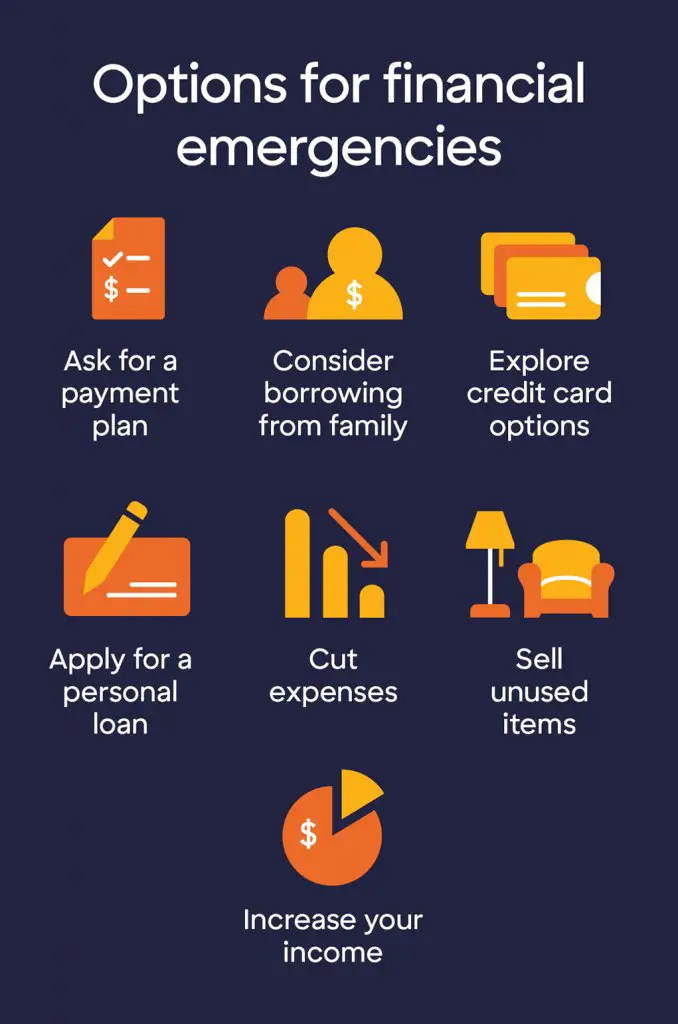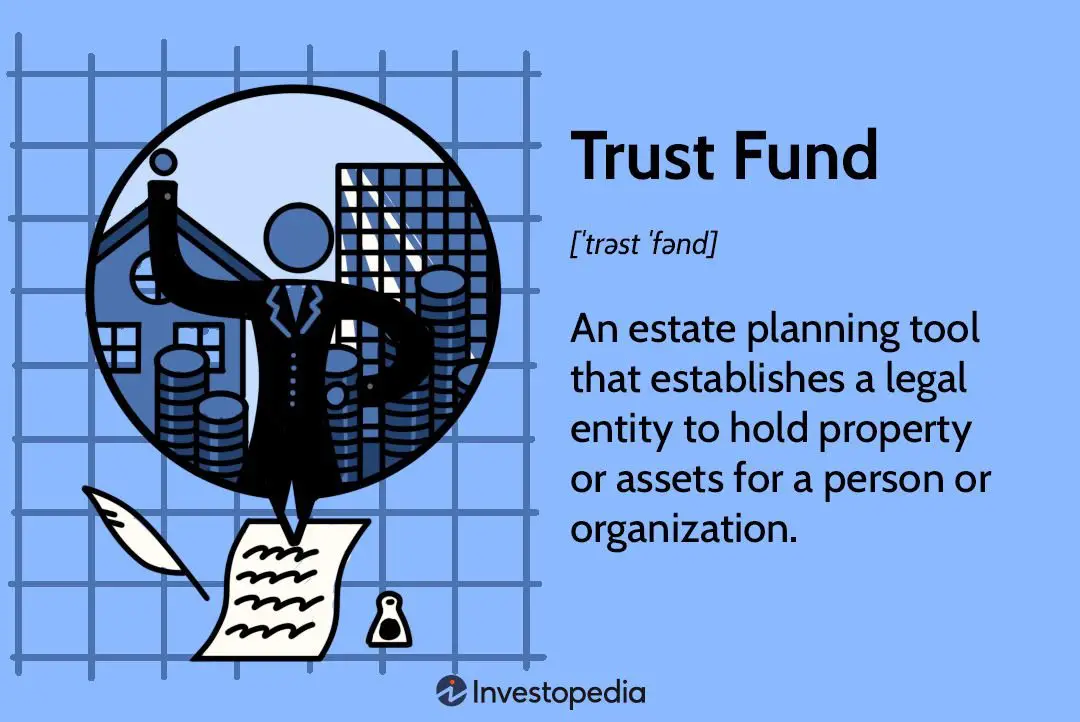Unexpected financial emergencies can catch anyone off guard, leaving us feeling overwhelmed and unsure of how to navigate through the storm. But fear not, for there are practical steps you can take to handle these challenges with resilience and confidence. In this article, we will explore effective strategies, expert advice, and practical tips on how to handle unexpected financial emergencies. By arming yourself with knowledge and a proactive mindset, you will be better equipped to face any financial curveball that comes your way. So let’s dive in and discover how to handle unexpected financial emergencies head-on.
How to Handle Unexpected Financial Emergencies
Introduction
Financial emergencies can strike at any time, leaving us feeling overwhelmed and uncertain about how to handle them. Whether it’s a sudden medical expense, a car repair, or unexpected unemployment, these situations can disrupt our lives and put a strain on our finances. However, with a proactive approach and careful planning, you can navigate through these challenges and come out stronger on the other side. In this article, we will explore effective strategies and practical tips on how to handle unexpected financial emergencies.
Assessing the Situation
When faced with a financial emergency, the first step is to assess the situation and understand the extent of the problem. Take the following steps to gain a clear picture of your financial standing:
- Review your expenses: Take a close look at your monthly expenses and identify areas where you can cut back temporarily to free up some funds.
- Evaluate your income: Determine how your income will be affected by the emergency. If you’re facing a job loss or reduction in income, assess how long you can sustain your current lifestyle.
- Calculate the financial gap: Determine how much money you need to bridge the gap between your income and expenses during the emergency. This will help you set a realistic goal for saving or finding alternative sources of income.
- Consider available resources: Take stock of any emergency funds, insurance coverage, or other financial resources that can help you during this time.
Creating an Emergency Fund
One of the best ways to handle unexpected financial emergencies is by having an emergency fund in place. An emergency fund acts as a safety net, providing you with a cushion to fall back on during tough times. Here’s how you can create and manage your emergency fund:
- Set a savings goal: Aim to save at least three to six months’ worth of living expenses. This will provide you with a comfortable buffer in case of a financial emergency.
- Automate your savings: Make saving for emergencies a priority by setting up automatic transfers from your paycheck to a separate savings account. This way, you won’t be tempted to spend the money elsewhere.
- Keep it easily accessible: While it’s important to keep your emergency fund separate from your everyday spending account, make sure it’s easily accessible. Opt for a high-yield savings account or a money market account that offers both liquidity and some interest earnings.
- Regularly review and replenish: Set a schedule to review your emergency fund periodically and replenish any withdrawals. Life circumstances and expenses can change, so it’s important to keep your fund up to date.
Exploring Alternative Income Sources
In times of financial uncertainty, it’s crucial to explore alternative income sources to alleviate some of the stress. Here are some strategies you can consider:
- Part-time or freelance work: Look for opportunities to generate additional income through part-time jobs or freelance work in your area of expertise.
- Utilize your skills: Assess your skills and talents to identify ways you can offer services or products to generate income. This could include tutoring, consulting, or creating and selling crafts or artwork.
- Rent out assets: If you have spare rooms, a car, or other assets that are not in use, consider renting them out to generate extra income.
- Online platforms: Explore online platforms that connect freelancers with clients, such as Upwork or Fiverr. These platforms offer a wide range of job opportunities.
Communicating with Creditors
If you find yourself unable to meet your financial obligations during an emergency, it’s important to communicate with your creditors. Ignoring the situation can lead to further financial stress and potential damage to your credit score. Take the following steps to manage your debts effectively:
- Reach out early: Contact your creditors as soon as you anticipate difficulty in making payments. Explain the situation and explore possible solutions.
- Negotiate payment plans: Work with your creditors to establish a temporary payment plan that suits your financial situation. This may involve reducing monthly payments or deferring payments for a short period of time.
- Seek professional advice if needed: If you’re struggling to negotiate with your creditors, consider reaching out to a credit counseling agency or a financial advisor who can provide guidance and assistance.
Minimizing Expenses
During a financial emergency, it’s essential to minimize your expenses and focus on essential needs. Consider the following strategies to reduce your spending:
- Create a budget: Develop a detailed budget that prioritizes essential expenses such as rent, utilities, and food. Cut back on discretionary expenses until your financial situation improves.
- Shop smart: Be mindful of your spending habits and look for ways to save money on groceries, transportation, and other everyday expenses. Use coupons, compare prices, and consider buying in bulk.
- Reevaluate subscriptions and memberships: Review your subscriptions and memberships and consider canceling or pausing those that are not essential.
- Reduce energy consumption: Take steps to lower your energy bills by turning off lights when not in use, adjusting thermostat settings, and using energy-efficient appliances.
- Explore cost-saving alternatives: Look for cost-saving alternatives in your lifestyle, such as cooking at home instead of eating out, carpooling or using public transportation instead of driving, and finding free or low-cost entertainment options.
Seeking Assistance Programs
In times of financial hardship, various assistance programs are available to provide temporary support. These programs can help you meet your basic needs and bridge the gap during an emergency. Here are some resources to consider:
- Government assistance programs: Check if you qualify for government programs such as unemployment benefits, food stamps, or housing assistance.
- Nonprofit organizations: Many nonprofits offer financial assistance, utility bill assistance, or food banks to individuals and families in need. Research local organizations to see what support is available in your area.
- Community resources: Reach out to community centers, churches, or local charities to inquire about any emergency assistance programs they may have.
Being Prepared for Future Emergencies
While it may not be possible to predict every financial emergency, being prepared can help mitigate their impact. Take these steps to ensure you’re better equipped to handle future unexpected expenses:
- Maintain an emergency fund: Once you’ve recovered from a financial emergency, continue to prioritize building and maintaining your emergency fund to prepare for future unforeseen circumstances.
- Review your insurance coverage: Regularly assess your insurance policies to ensure they adequately cover potential emergencies such as medical expenses, home repairs, or automobile accidents.
- Implement precautionary measures: Take steps to minimize the risk of potential emergencies. This may include regular maintenance of your car or home, staying healthy through exercise and a balanced diet, and having a backup plan for childcare or pet care.
- Educate yourself: Continuously educate yourself about personal finance, budgeting, and long-term financial planning. The more knowledgeable you are, the better equipped you’ll be to handle unexpected financial challenges.
Handling unexpected financial emergencies can be daunting, but with a proactive and strategic approach, you can navigate through these difficult times. By assessing your situation, creating an emergency fund, exploring alternative income sources, communicating with creditors, minimizing expenses, seeking assistance programs, and preparing for future emergencies, you will be better equipped to handle any financial curveball life throws your way. Remember, staying calm, focused, and proactive is key to overcoming and recovering from these unexpected challenges.
How do you handle unexpected expenses or financial emergencies?
Frequently Asked Questions
Frequently Asked Questions (FAQs)
1. How can I handle unexpected financial emergencies?
In times of unexpected financial emergencies, there are several steps you can take to handle the situation:
- Create a budget: Evaluate your income and expenses to see where you can cut back and save more money.
- Build an emergency fund: Start saving regularly in a separate account to have funds available for unexpected situations.
- Explore alternative income sources: Consider taking up a part-time job or freelancing to boost your income.
- Contact creditors: Reach out to your creditors and explain your situation. They may be able to provide temporary relief options like reduced payments or a payment plan.
- Seek assistance programs: Research and apply for assistance programs available in your area that can provide financial aid during emergencies.
2. What if I don’t have an emergency fund?
If you don’t have an emergency fund, there are still options available:
- Explore personal loans: Consider applying for a personal loan from a reputable financial institution. Compare interest rates and terms before making a decision.
- Use credit cards sparingly: While credit cards can be convenient, be cautious and use them wisely to avoid accumulating excessive debt.
- Reach out to family and friends: If possible, seek help from your loved ones during tough financial times. Discuss your situation and consider repayment terms.
- Research local resources: Look for local organizations or charities that may provide financial assistance or guidance in emergencies.
3. Can I negotiate with my creditors during a financial emergency?
Yes, it is often possible to negotiate with your creditors during a financial emergency:
- Contact your creditors: Reach out to your creditors as soon as possible and explain your situation honestly.
- Request temporary relief: Ask if they offer any temporary relief options, such as reduced interest rates, extended payment terms, or a temporary hold on payments.
- Provide necessary documentation: Be prepared to provide any documentation they may require to support your request, such as proof of income or medical bills.
- Stay committed to communication: Keep your creditors updated on your financial situation and any changes that may affect your ability to repay them.
4. Should I consider borrowing from my retirement savings to handle a financial emergency?
Borrowing from your retirement savings should generally be a last resort:
- Consider other options first: Exhaust all other possibilities for financial assistance before tapping into your retirement savings.
- Weigh the consequences: Understand the potential consequences, such as early withdrawal penalties, taxes, and the impact on your future retirement funds.
- Consult a financial advisor: Seek guidance from a financial advisor who can help you evaluate the pros and cons of borrowing from your retirement savings.
5. What steps can I take to prevent future financial emergencies?
To prevent future financial emergencies, take the following steps:
- Create a budget and stick to it: Monitor your income and expenses to ensure you are living within your means.
- Build an emergency fund: Set aside a portion of your income each month to establish an emergency fund for unexpected expenses.
- Review your insurance coverage: Make sure you have adequate insurance coverage, including health, home, and auto insurance, to protect yourself from unexpected costs.
- Invest in your financial education: Learn about personal finance, saving strategies, and investment opportunities to make informed financial decisions.
6. Are there any government programs available to assist with financial emergencies?
Yes, there are government programs that can provide assistance during financial emergencies:
- Unemployment benefits: If you have lost your job, you may be eligible for unemployment benefits provided by the government.
- Temporary Assistance for Needy Families (TANF): TANF offers financial assistance to low-income individuals and families in need.
- Supplemental Nutrition Assistance Program (SNAP): SNAP provides eligible individuals and families with food assistance to help meet their nutritional needs.
- Emergency rental assistance: Some government programs offer emergency rental assistance to individuals struggling to pay rent.
7. Should I consider debt consolidation during a financial emergency?
Debt consolidation can be a viable option to manage your debts during a financial emergency:
- Assess your situation: Evaluate your debts, interest rates, and repayment terms to determine if debt consolidation is the right choice.
- Research reputable consolidation options: Look for reputable financial institutions or credit counseling agencies that offer debt consolidation services.
- Understand the terms: Review the terms and fees associated with debt consolidation to ensure it aligns with your financial goals.
- Create a repayment plan: Develop a realistic repayment plan that allows you to pay off your debts systematically.
8. What steps should I take if my financial emergency involves medical expenses?
If your financial emergency involves medical expenses, consider the following steps:
- Review your insurance coverage: Understand your health insurance policy and coverage to determine your financial responsibility.
- Reach out to healthcare providers: Contact your healthcare providers and explain your situation. They may offer payment plans or financial assistance options.
- Research medical financial aid programs: Many hospitals and healthcare organizations have financial aid programs that can help individuals facing medical emergencies.
- Explore negotiated discounts: Inquire about negotiated discounts or reduced fees for medical services.
Final Thoughts
In conclusion, when faced with unexpected financial emergencies, there are several steps you can take to handle the situation effectively. Firstly, assess the magnitude of the emergency and create a budget to manage your expenses. Secondly, explore options such as emergency savings, insurance coverage, or seeking financial assistance from family or friends. Additionally, consider reducing non-essential expenses and finding ways to increase your income, such as taking on a part-time job or freelancing. Remember to communicate with creditors and negotiate payment plans if necessary. By following these steps and seeking professional advice if needed, you can successfully navigate and overcome unexpected financial emergencies.



